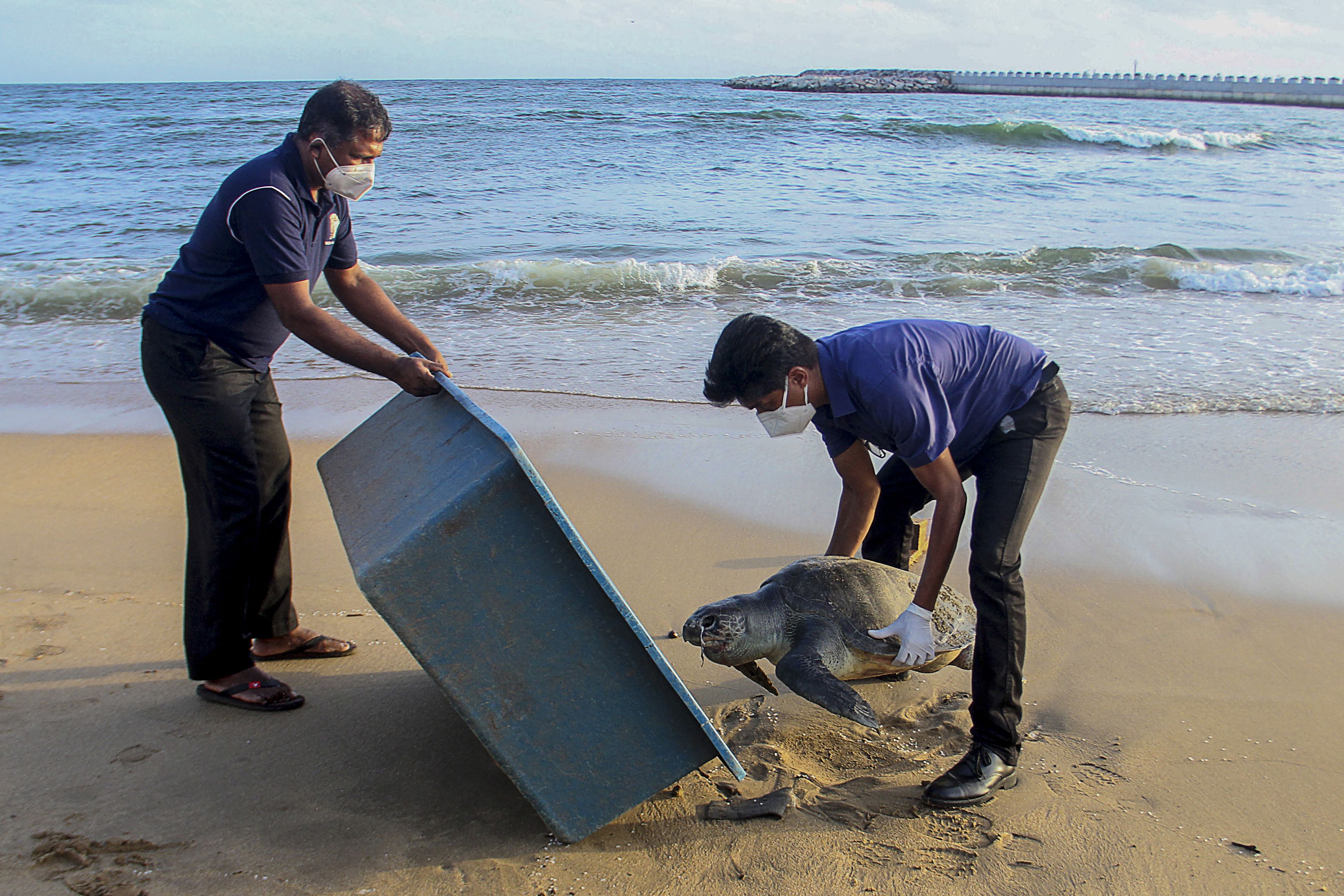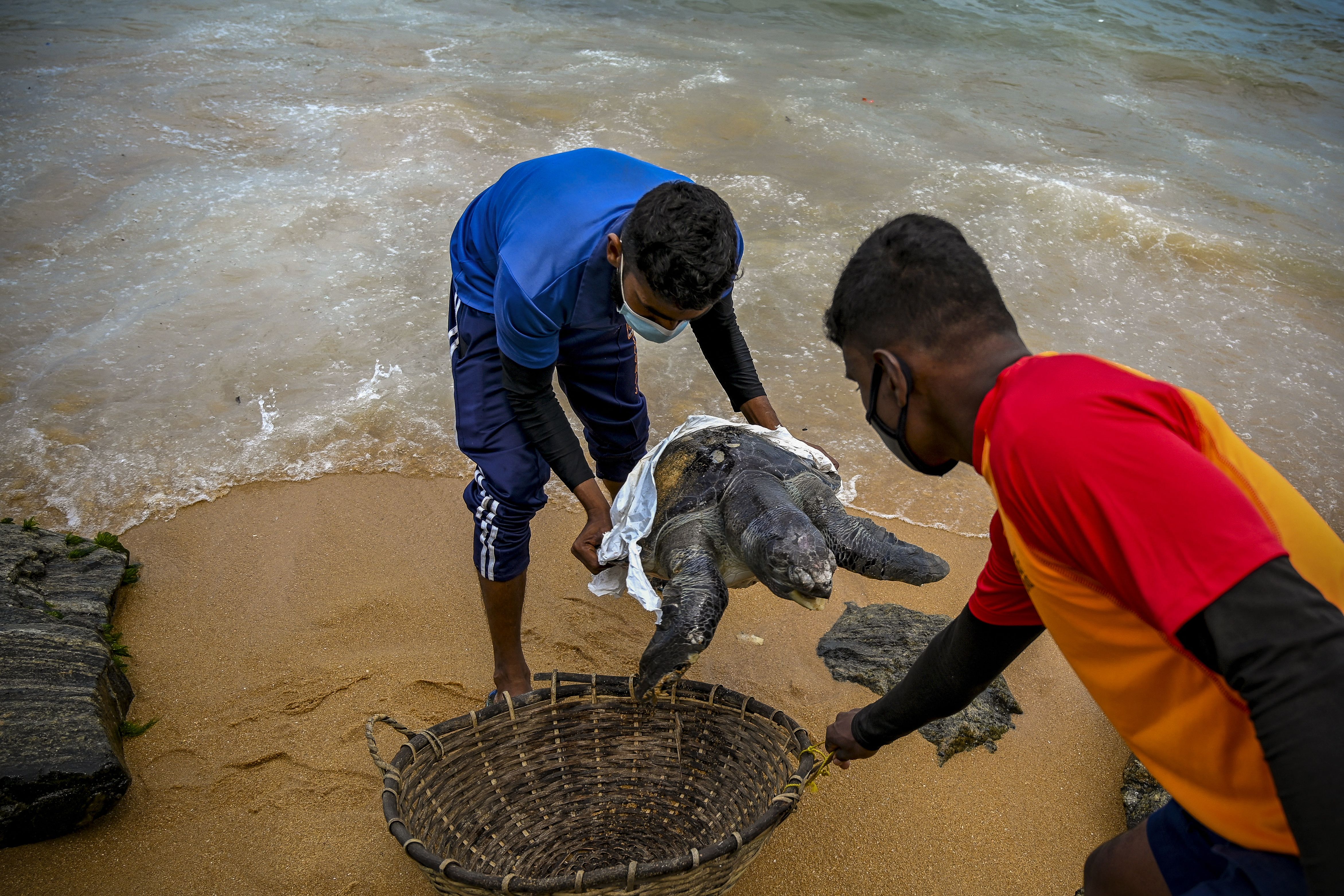Hundreds of dead turtles wash ashore in Sri Lanka after cargo ship sinking
At least 176 turtles, 20 dolphins and four whales die due to heat and toxins from ship

Hundreds of dead turtles are washing up on the shores of Sri Lanka’s beaches, in what environmental experts have dubbed as one of the country’s worst man-made environmental disasters.
Reports said at least four whales, 20 dolphins and 176 turtles are among the dead, weeks after a cargo ship caught fire and sank off the west coast of the country in June.
Wildlife officials have been removing the carcasses of dead sea turtles and dolphins that were killed from chemical poisoning and intense heat from the container ship that kept burning for almost two weeks off Sri Lanka. Sri Lanka’s Navy and Air Force, together with the Indian Coast Guard, worked together to eventually douse the fire.
On 20 May, Singapore-registered MV X-Pearl with 1,486 containers — including 25 tonnes of nitric acid along with other chemicals and cosmetics — caught fire. Reports said the crew had known of a leak in one of the containers.
The ship kept burning for almost 14 days, after which it sank on 2 June. The crew had been evacuated and taken to the hospital. A couple of members had also tested positive for Covid-19 and were isolated.
Reuters reported that Tyutkalo Vitaly, the Russian captain of the ship, appeared in court on Thursday but has yet to be charged.
At the initial court hearing on Wednesday, the country’s deputy solicitor general Madawa Tennakoon, said that the toxins released from the burning ship killed “176 turtles, 20 dolphins and four whales”.
“There were more than 190 items of cargo (on the ship) and most of it was plastic-based,” said Mahinda Amaraweera, the environment minister. Countless plastic pellets have also been scattered all over the shore with several volunteers trying to clear them.

Most of the carcasses found on the west coast are known to be directly affected by the shipwreck because sea creatures never die this way, according to Mr Amaraweera.
“It is very obvious that the deaths of these sea animals are connected to the ship. Last year, during the same time period only two turtle deaths were reported,” said Dharshani Lahandapura, the chairperson of Sri Lanka’s Marine Environment Protection Authority.
Colombo-based Center for Environmental Justice estimates the ship spilled as many as 70 billion tiny bits of plastic known as nurdles, which can fatally clog the digestive systems of animals that eat them, the New York Times reported.
The Sri Lanka government has named at least 15 people, including Mr Vitaly, as suspects in cases over the damage caused. Mr Vitaly didn’t speak with the media on leaving the court on Thursday, local reports said. He has been barred from leaving the country.
Initially, when plastic pellets and debris from the sinking ship were washing up on the shore, the Sri Lankan government put a ban on fishing. However, authorities said last week that they had lifted the ban in parts of the affected coast.
Join our commenting forum
Join thought-provoking conversations, follow other Independent readers and see their replies
Comments
Bookmark popover
Removed from bookmarks